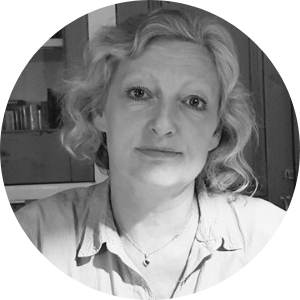Karin Blak, author of a new companion guide to all forms of talking therapy, debunks three common myths about the therapy journey.
by Karin Blak
In a society where the subject of mental health is increasingly becoming a normal part of our daily conversation, it is surprising that myths about therapy still exist. Sadly, these myths might also be responsible for us not seeking the help we need, when we need it. Our fears of mental health issues and our belief that therapy is for others, not for us, has created an attitude that if we need therapy, we are somehow faulty.
Three common myths I often hear as a therapist have stopped people wanting to engage in therapy and have consequently stood in their way of seeking the help they long for and perhaps need:
“All I need is to talk with a good friend or my mum“
There is no doubt that having friends and family to talk with about life is vital to living a healthy and balanced existence. Family and friends can talk with us about their life experiences and give us anecdotes from people they know. During these conversations we will at times hold back on what we say, not wanting to upset the situation or look stupid. Perhaps we don’t want people we know to see the evidence of the emotions we feel.
As we go back and forth, talking about one thing that then leads on to another, we find comfort and calm in the stories we hear. The tales of others who seemingly have been in similar situations and how they did or did not cope, work to placate us and perhaps give us ideas of different ways of coping. It might help to know we are not alone in our experiences. It can warm us and create a feeling of belonging, all of which is important to us. Family and friends are for life and will provide us with physical comfort and reassurance that everything will be ok. They support us, as we support them.
Sometimes this support simply doesn’t do the trick and we need a different type of conversation to move us through a difficult or overwhelming experience. Therapy provides this neutral space where we are the sole focus of the conversation and are helped to move through our struggles.
“Only emotionally weak or mentally ill people go to therapy“
If we believe it is a show of strength to cope with whatever life throws at us, no matter how dreadful we feel, we are likely to supress and block some of our deepest emotional experiences available to us. We all have emotions and to live a rich and fulfilled life, we need to allow the full rainbow of these emotions to exist.
In moments when we feel our inner lives are not supporting the happiness we long for or the contentment we have known, rather than rejecting what is happening inside, we need to reach in to listen, perhaps heal a wound or nurture a neglected side of us.
Being emotionally weak or mentally ill doesn’t have anything to do with noticing our emotions. It may initially be scary to look inside ourselves, though the more of our emotional repertoire we are able to accept and include in our life, the stronger we become. Integrating our ability to experience the full range of our emotions will strengthen us, not make us weak.
“Being resilient means you don’t need therapy“
Even though we might be able to bounce back from most of our emotional dips and blips, some experiences can still present us with overwhelming emotions or test our usual coping strategies. It is the efficiency of our coping strategies that make us resilient, however, the skills we apply to managing life rarely lasts a lifetime.
As we develop, evolve and mature, it is quite likely that our coping strategies need updating as we grow. If we carry on applying outdated strategies, we can experience an increase in the overwhelming emotions we feel.
Being resilient means we have coping strategies that are adequate and tailored to who we are and how we fit into life. It is also the ability to recognise when our skills are no longer working. Then taking the steps to seek the help we need to develop our self-awareness and life management strategies will result in updating and developing our resilience. Therapy is one such place where we can develop our own new version of resilience.
Myths can easily give us a skewed idea of therapy and how it works, potentially stopping us from seeking the help that could turn our life around. Myths are usually created through the lack of adequate knowledge about a subject and can reflect an old-fashioned view of society. Two of the above myths date back to the time when mental health institutions were called asylums or loony bins. Those were also the days when people experiencing overwhelming emotions were given ice baths and electric shocks in an effort to remove or control those emotions that were deemed so unacceptable. Of course, at the time these treatments were more likely to make matters worse, much worse.
These days, the therapeutic work with overwhelming emotions or struggles in life are not treatments as such, but a collaboration between therapist and client. It is a space where emotions are accepted and as much as possible, integrated into our lived experiences.
Updating and developing the general knowledge about therapy in our society will work to eradicate these outdated myths and replace them with true knowledge that will help us to help ourselves.
Find out more:

Karin Blak is a therapist with certifications in relationship counselling, family therapy, and a post-graduate diploma in psychosexual and relationship therapy. She is the 2019 winner of the East Midlands SME Most Dedicated Relationship Therapist award. She has worked at GP surgeries, inpatient units, Sure Start Centres, Relate and in private practice. She has spoken on BBC Radio and blogs on Medium about relationship and self-development issues.
Bookshelf:
The Essential Companion to Talking Therapy: Everything You Need to Know About the Therapy Journey by Karin Blak, published by Watkins Publishing, RRP £12.99

 Cart is empty
Cart is empty 
